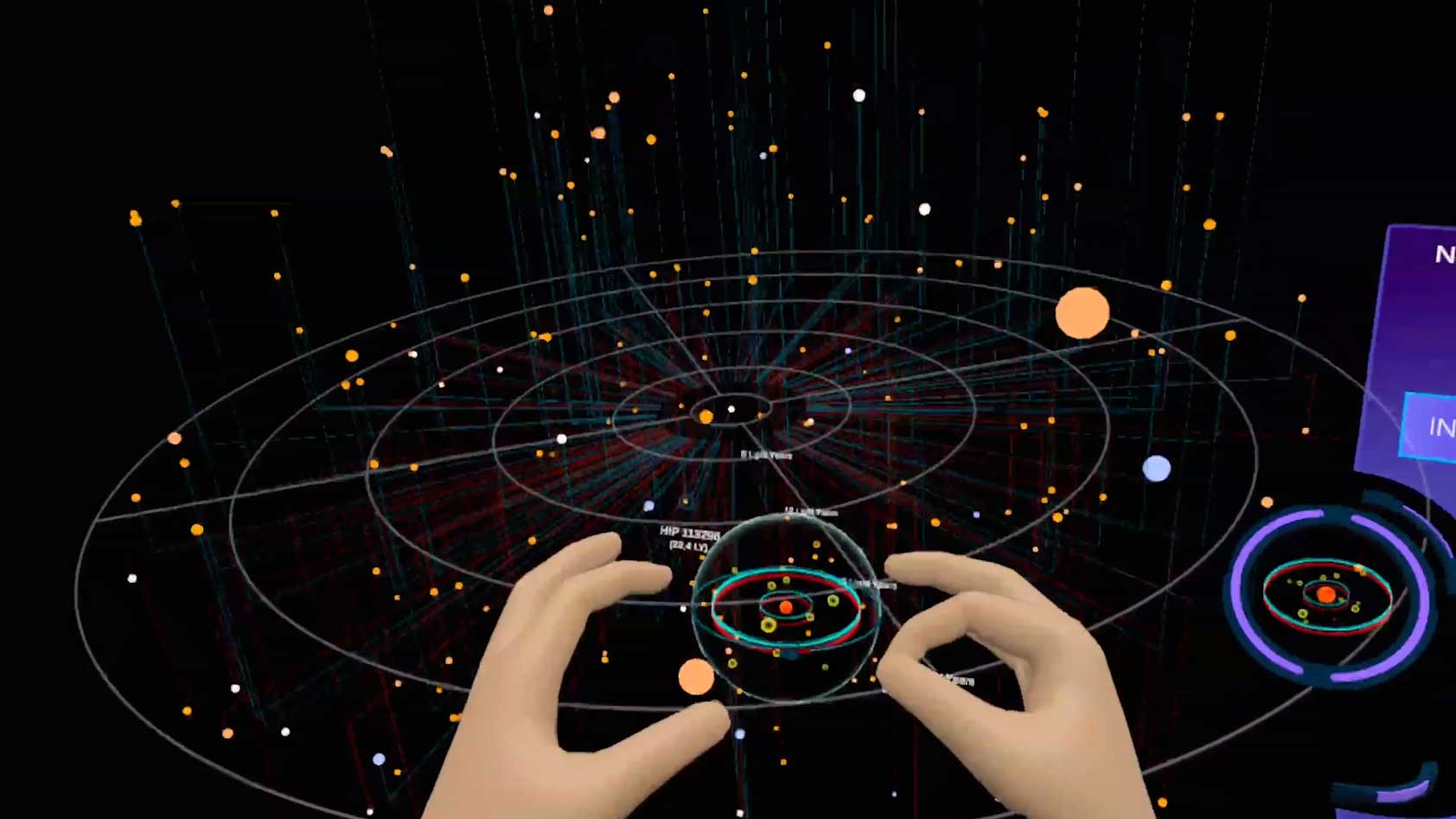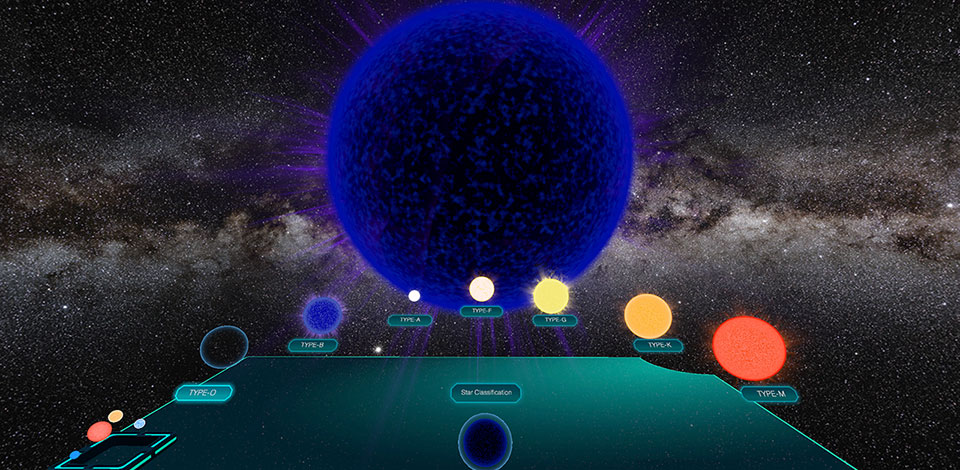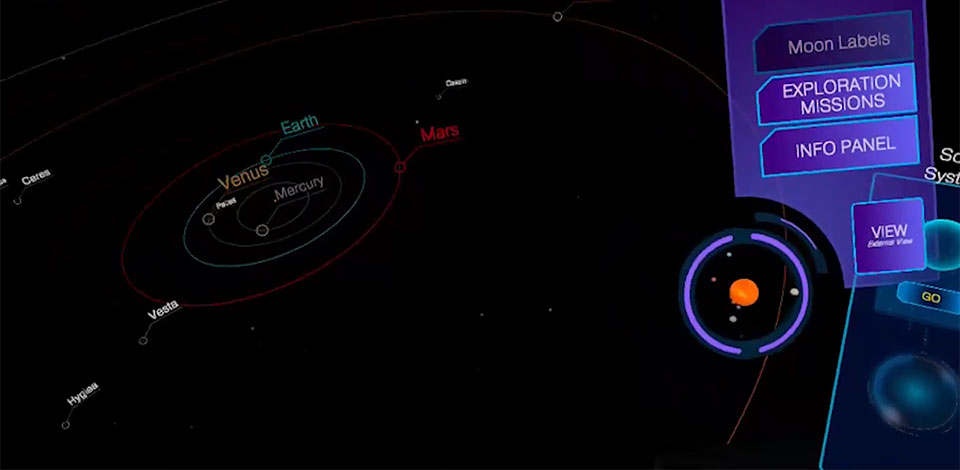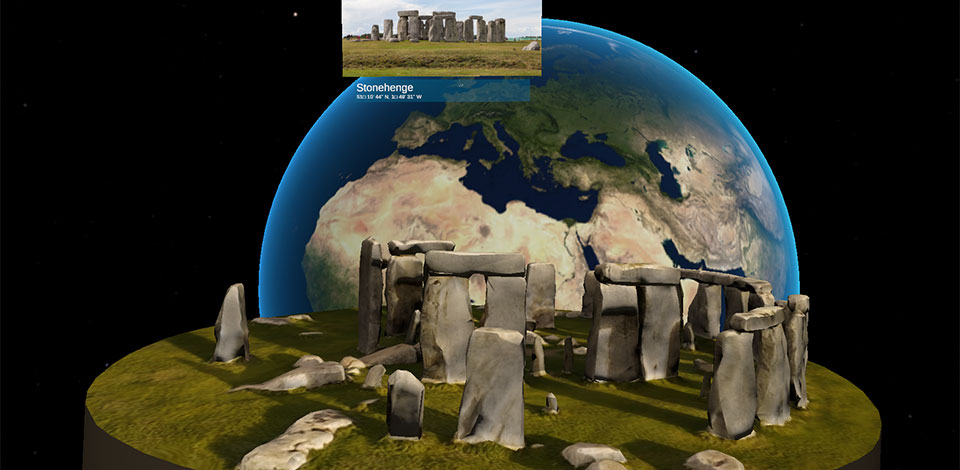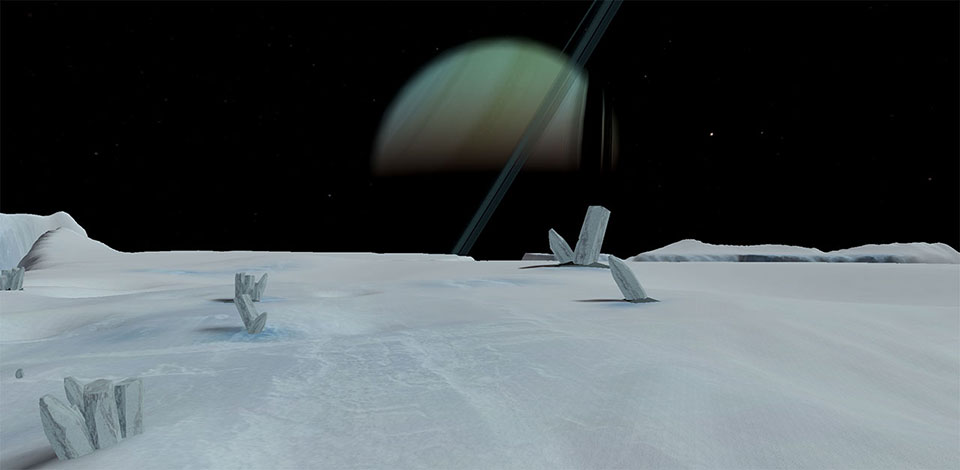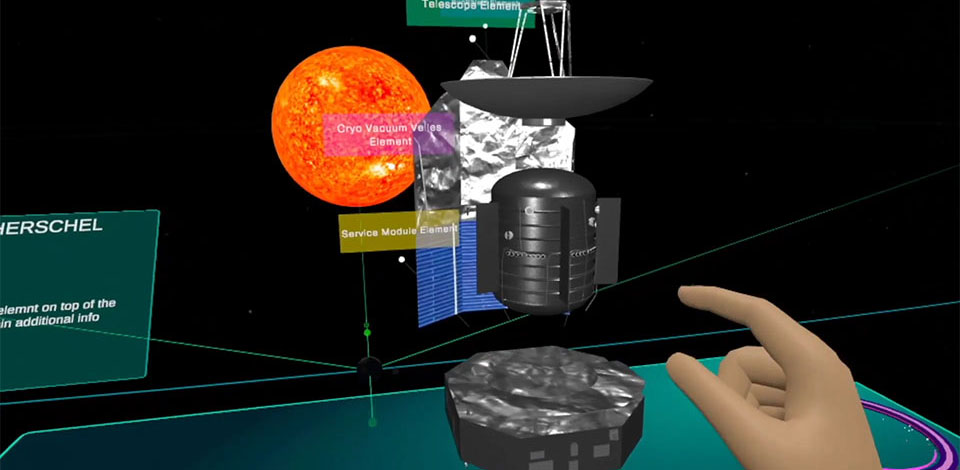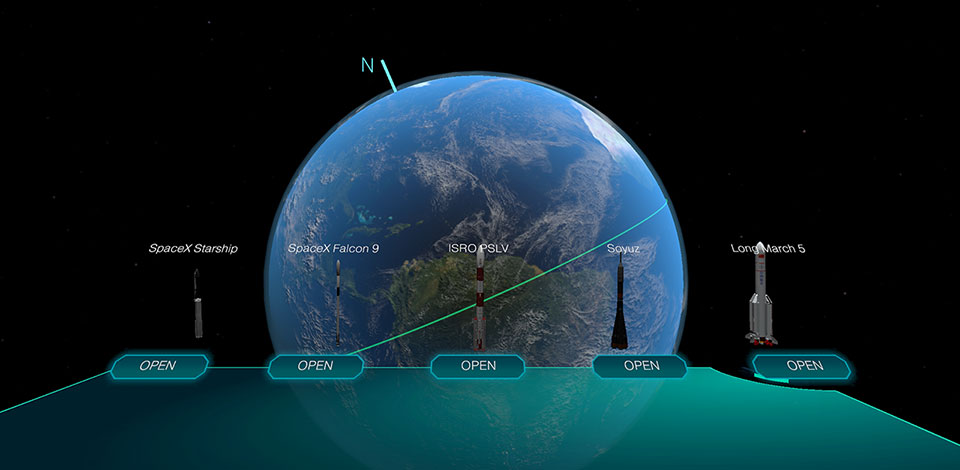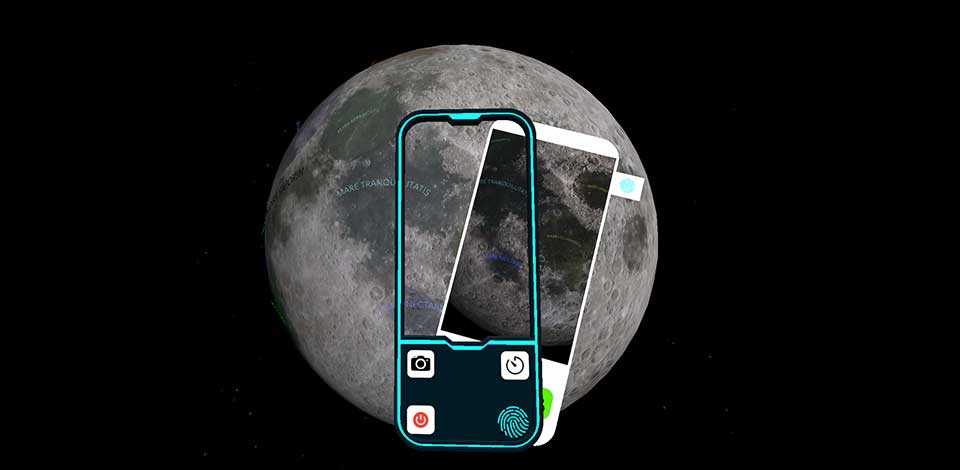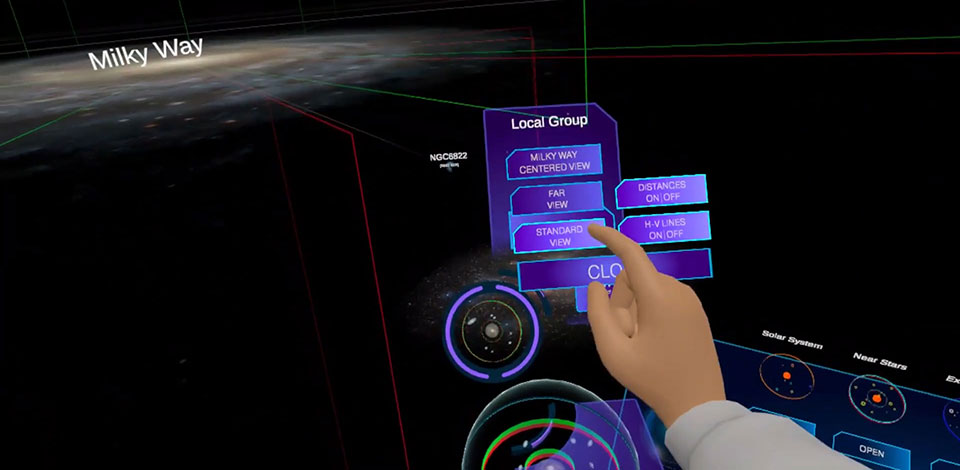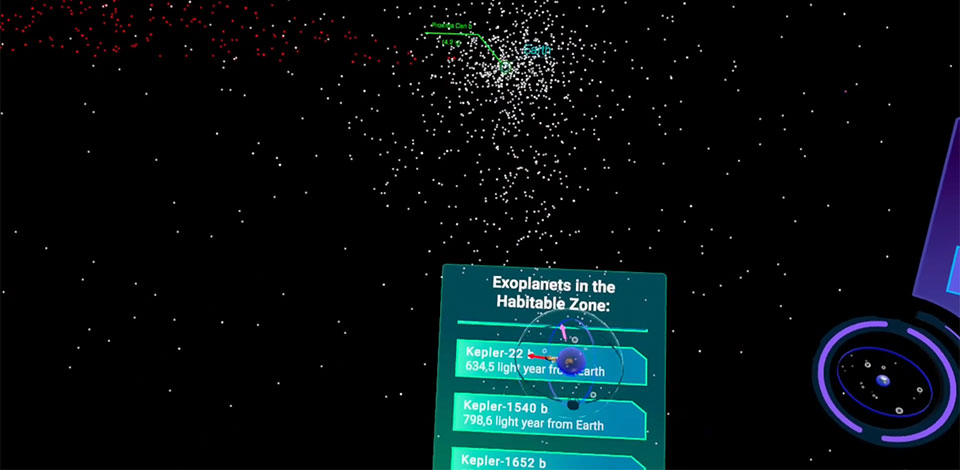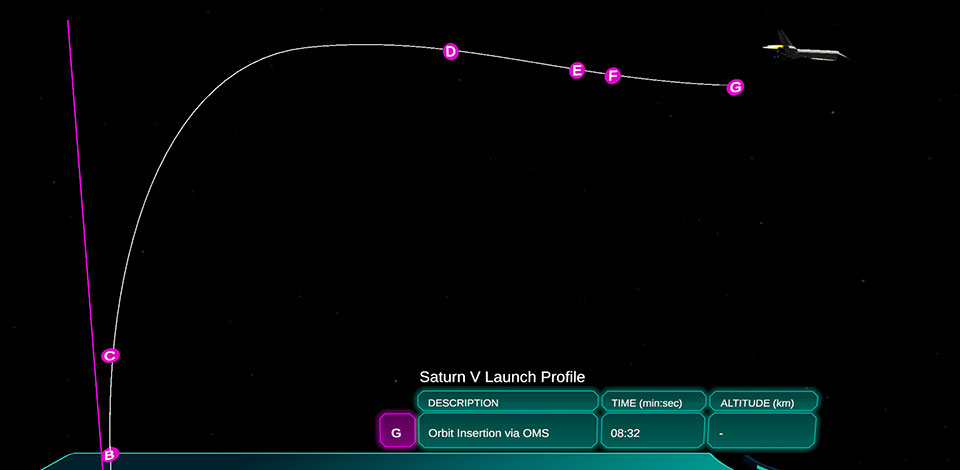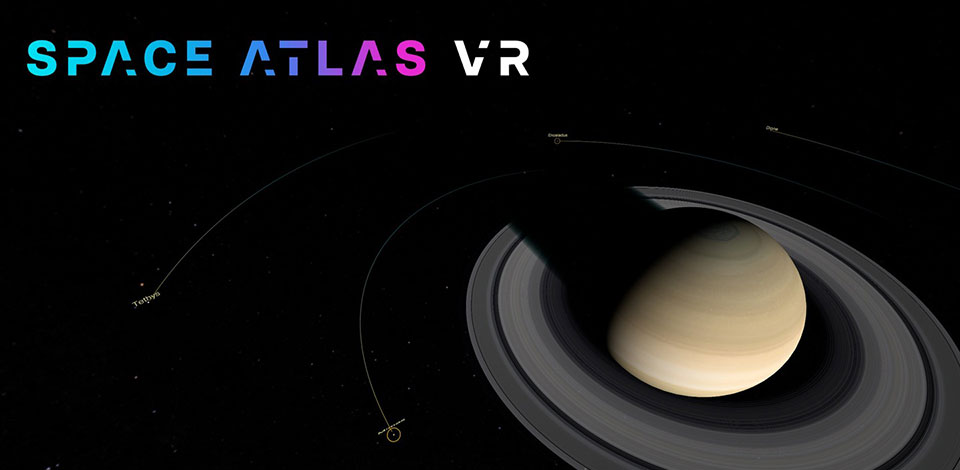Space Atlas VR is an edutainment experience focused on space and space exploration. With Space Atlas VR, the user can travel through the Solar System; visit the surface of the Moon, Mars, and other celestial bodies; interact with detailed maps of the nearby stars and known exoplanets; examine the 3D models and mission timeline of various space exploration systems. Space Atlas VR provides access to accurate and detailed information about the most fascinating topic in the universe through an intuitive and immersive user interface.
Our objective is to develop the next generation edutainment tool, leveraging the strengths of Virtual Reality to offer an engaging and effective learning tool to space enthusiasts. In the coming months, Space Atlas VR will continue to evolve and expand its contents to become ever more relevant and comprehensive.
- Earth
Explore our planet as seen from space, view the dataset generated by earth observation missions, learn about the artificial satellites orbiting it, and discover details about our Moon. - Solar System
Experience an accurate 3D model of our solar system, with the positions and movements of each celestial body based on NASA data. Visit these bodies and delve into the technical details of exploration missions. - Universe
Immerse yourself in a series of cosmic scenes, including an accurate 3D map of all stars within 30 light-years of the Sun, a detailed representation of our galaxy - the Milky Way - and a comprehensive 3D map of known exoplanets.
Space Atlas VR is designed to provide a highly immersive, intuitive, and informative Virtual Reality experience by leveraging the strengths of Meta Quest 2 and Quest 3.
Its user interface is optimized for both hand-tracking and controllers, while the graphics and sounds take full advantage of the hardware capabilities. In the coming months, we plan to add support for multiple languages and the option to explore the Atlas together with other users (in a master-slave configuration).
Space Atlas VR is made in Unity, one of the most advanced development tools for VR/AR experiences. 3D models are developed and/or optimized in Blender, an incredibly powerful and flexible open-source software. Music and sounds are managed through Wwise, an amazing tool for interactive audio.
Roadmap
Project Kick-off
First Prototype Completed
UX/UI Design Finalized
First Demo Released
Ongoing Demo Updates
Early Access Program Launched
Space Atlas VR (2025) Official Release
Regular App Updates



